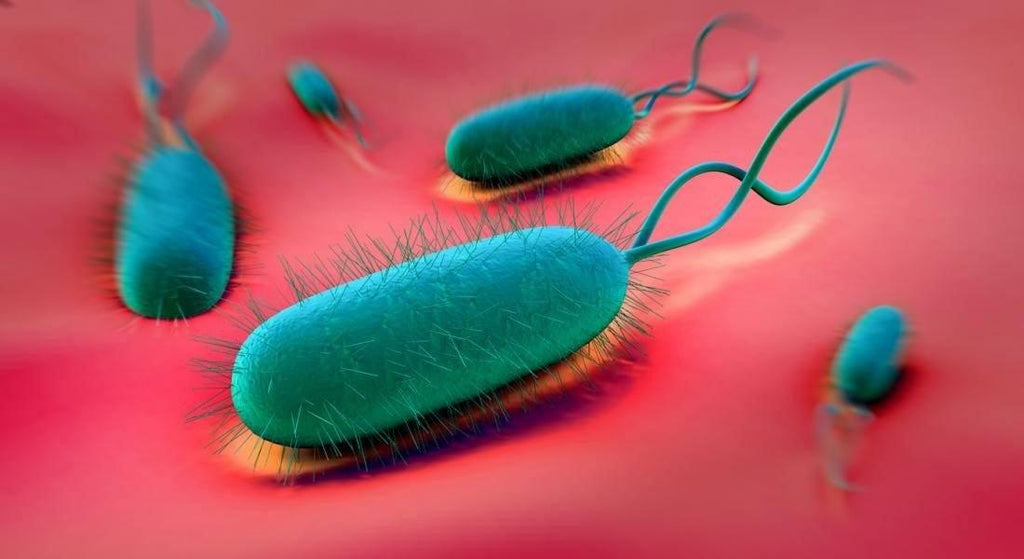There is a highly contagious, sneaky bacterial infection that affects an incredible 66 percent of the world’s population (2 out of 3 of us).
In 90 percent of the cases there are no symptoms at all, so most people who have it don’t even know it.
But just because there are no symptoms, that doesn’t mean people that have it are in the clear.
Because this infection can increase your stomach cancer risk by a staggering 600 percent!
And the kicker is the standard medical treatment isn’t always effective, and it comes with a long list of negative side effects to boot.
This silent but possibly deadly infection is…
Helicobacter pylori (H. pylori)!
Here is what you need to know.
Share and share alike
It’s been estimated that H. pylori has been around for at least 200,000 years, so that’s certainly a statement as to its robustness and ability to survive and thrive.
And the reason two out of three of us are infected is because H. pylori is relatively easy to get!
It’s transmitted through direct contact with the saliva, vomit or feces of an infected person, so things like kissing and sharing drinkware or utensils can pass the bacteria from one person to another. Plus it can be contracted through consumption of contaminated food or water.
Its wrath is far and wide
While most people don’t have symptoms, when H. pylori does stir up symptoms they can include:
- Bloating, belching
- Nausea, vomiting
- Heartburn, acid reflux
- Diarrhea
- Bad breath
- Dark, tarry stools
But H. pylori’s main claim to fame is it’s the underlying cause of most ulcers. Current estimates are that H. pylori causes about 80 percent of peptic (stomach) ulcers, and 90 percent of duodenal (upper small intestine) ulcers.
It can also cause ulcers in the esophagus, and lead to gastritis (chronic stomach inflammation) too.
But most disturbingly, having H. pylori can raise your risk of developing stomach cancer by up to six times higher!
The cure isn’t always effective…or can make things worse!
The typical treatment for H. pylori is “triple therapy”—two antibiotics paired with a proton pump inhibitor (PPI) such as Nexium.
That can mean gulping up to 20 pills or more a DAY—if the thought of that doesn’t make you gag; I don’t know what will.
But this “cure” is quickly losing effectiveness because H. pylori (like many other species of bacteria) is becoming resistant to antibiotics.
Plus let’s not forget that antibiotics obliterate your gut microbiome—which can severely impact your digestion and weaken your immune system function.
And the documented dangers of PPIs continue to grow, including increasing your risk of chronic kidney disease, heart attack, Alzheimer’s and fractures, as well as increasing your overall death risk by a whopping 50 percent.
Natural ways to treat H. pylori (as well as ulcers, acid reflux and gastritis!)
H.pylori and the diseases it causes will likely continue to be on the rise since the mainstream medical community is running out of answers to effectively treat it.But the good news is there are several very effective natural ways to counter H. pylori, without the harmful health risks of triple therapy!
Here are some of the best:
Mastic gum and ginger
Mastic gum has been used in treating gastric illnesses since about 3,000 BC and has been shown in studies to be a very effective antibacterial agent against H. pylori.
And ginger has been found to generate a protective effective against H. pylori, inhibiting its growth.
Our new Gastro BeCalm Blend combines both these herbal superstars, along with licorice root (a natural heartburn/acid reflux remedy) and marshmallow root (which soothes the GI tract)!
Garlic
Garlic is a natural antibacterial, antibiotic and anti-inflammatory which has been shown to kill off and inhibit the growth of H. pylori. It is also associated with a lower risk of gastric cancer.
Probiotics
Your gut takes a double hit when you’ve got H. pylori. First, it is a harmful species of bacteria which can challenge your friendly intestinal flora all on its own.
Plus, if you’ve taken antibiotics for H. pylori (or any other infection for that matter), your poor gut microbiome is most assuredly struggling and waving the white flag of defeat!
But a full-spectrum probiotic formula like Super Shield multi-strain probiotic formula can help repopulate your helpful intestinal inhabitants and support a healthier flora balance which can better protect you from harmful microbes including H. pylori.
Two of Super Shield’s strains—Lactobacillus paracasei and Lactobacillus brevis—have been shown in research to be VERY effective at fighting H. pylori.
Cranberry juice
Most commonly known for helping with urinary tract infections (UTI), cranberry juice has also shown promise in various studies to counteract and weaken H. pylori.
Green tea
Green tea has been shown to inhibit the growth of H. pylori as well as help prevent inflammation and treat gastritis.
To your health,
Sherry Brescia












I had H pylori which I treated with Matula tea.. drinking a cup am and pm for 60 days. It disappeared and I tested negative on tool test. I heard it can come back though….have not checked lately!
Yes, I second that. Thanks for the wonderful information you have consistently given over the years, Sherry. Love from SC
Thank you for all the great info you always give.